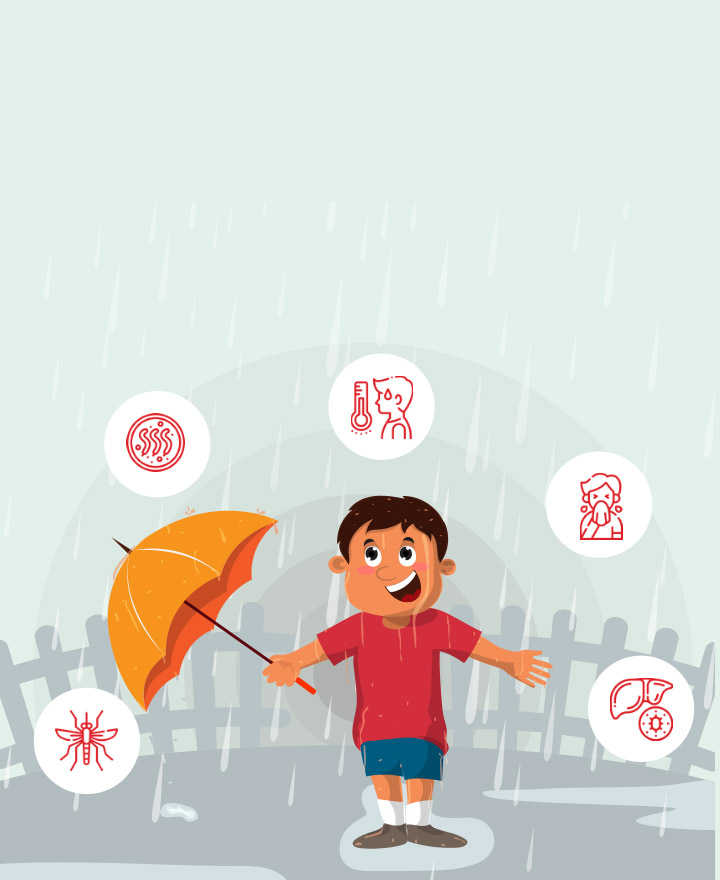

Is Rainwater Safe to Drink?
Rainwater may look like it is free from impurities but it tends to gather contaminants as it passes through the atmosphere and on surfaces. Here, the question arises: Is rainwater clean or dirty? Is direct rainwater safe to drink? Read on to understand the dangers of using contaminated rainwater and ways to make water safe through filtration and purification.
Risks Associated with Using Contaminated Rainwater
When considering the safety of rainwater, it's important to examine is rainwater clean or dirty. The answer can vary. Rainwater can be contaminated by pollutants from the air, bird droppings, or debris from roofs and gutters. This apparently clean, dirty water may harbour harmful bacteria, viruses, and parasites, posing severe health risks if ingested. While rainwater might seem clean, the reality is that without proper treatment, it can lead to waterborne illnesses.
Methods to Ensure Water Safety
To ensure that rainwater is safe for consumption, taking certain precautions is essential. Start by collecting rainwater in clean containers that are free from any contaminants. To further reduce the risk of contamination, avoid collecting rainwater directly from roofs or surfaces that might carry debris or chemicals. Even if the seemingly clean but dirty water looks clear, you must consider whether rainwater is safe to drink without further treatment. The answer is usually no.
Importance of Filtration and Purification
Given the risks associated with consuming contaminated rainwater, filtration and purification are vital steps in making the water safe to drink. Filtration helps remove larger particles, dirt, and certain contaminants, while purification methods, such as boiling or using UV light, can eliminate harmful microorganisms. To assess is rainwater clean or dirty, remember that even filtered rainwater should be purified to ensure it's safe for consumption.
FAQs
1. Is it safe to drink rainwater directly?
No, direct rainwater is unsafe to drink without proper filtration and purification.
2. What contaminants can be found in rainwater?
Rainwater can contain pollutants from the air, bacteria, viruses, and debris from surfaces.
3. How can I make rainwater safe to drink?
To make rainwater safe, use proper filtration to remove particles and purification methods like boiling or UV treatment to eliminate microorganisms.
Conclusion
Rainwater can be a valuable water source, but only when properly treated. Understanding whether rainwater is clean or dirty is the first step in protecting your health. Implementing simple filtration and purification methods ensures rainwater is safe to drink, reducing the risk of waterborne illnesses.
One of the important components of our overall wellness is also being financially secured. Healthcare emergencies can happen any time, but a good health insurance policy can protect you from such uncertain situations. To know more about Wellness and other health related tips, visit the wellness corner.
Source: waterlogic.com, aquaread.com
Disclaimer: This blog provides general information and discussions about health and related subjects. The information and other content provided in this blog, website or in any linked materials are not intended and should not be considered, or used as a substitute for, medical advice, diagnosis or treatment. Kindly contact your Doctor before starting a new medicine or health regime.
Related Articles
Tips to Stay Healthy in Monsoon
Published on October 15, 2024














 Health Insurance
Health Insurance  Travel Insurance
Travel Insurance  Car Insurance
Car Insurance  Cyber Insurance
Cyber Insurance  Critical Illness Insurance
Critical Illness Insurance
 Pet Insurance
Pet Insurance
 Bike/Two Wheeler Insurance
Bike/Two Wheeler Insurance  Home Insurance
Home Insurance  Third Party Vehicle Ins.
Third Party Vehicle Ins.  Tractor Insurance
Tractor Insurance  Goods Carrying Vehicle Ins.
Goods Carrying Vehicle Ins.  Passenger Carrying Vehicle Ins.
Passenger Carrying Vehicle Ins.  Compulsory Personal Accident Insurance
Compulsory Personal Accident Insurance  Travel Insurance
Travel Insurance  Rural
Rural